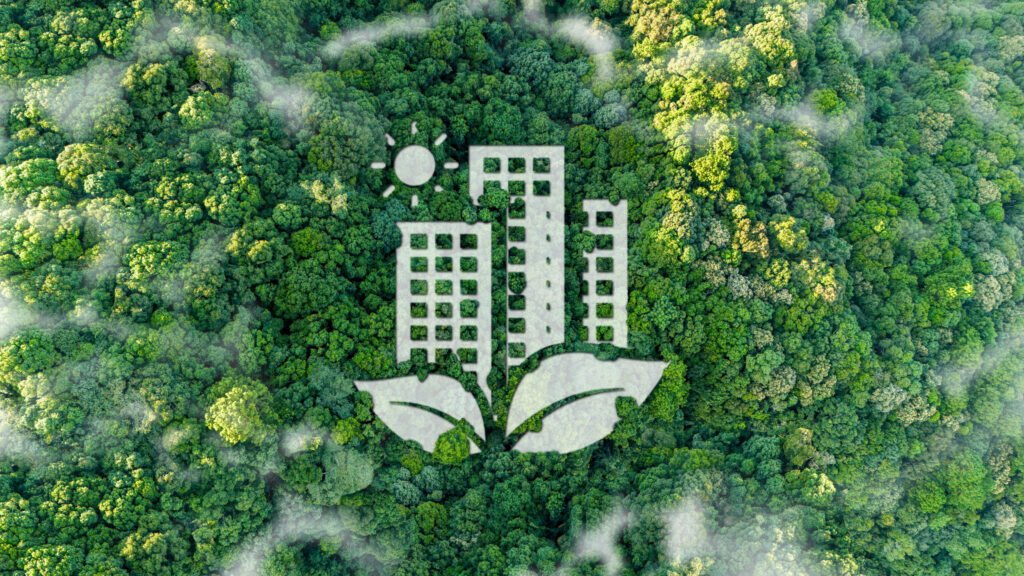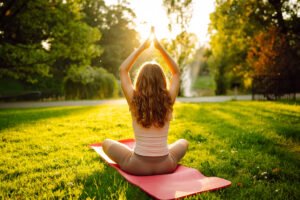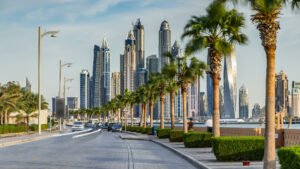Dubai is widely known for redefining architecture, from famous towers to man-made islands; this city keeps surpassing expectations every year. But nowadays, something else is taking form within the real estate market: sustainability.
The UAE is committed to having net-zero carbon emissions by 2050. As global concerns for climate change continue to rise, so do the plans to prevent it from getting worse. In response, the real estate market is shifting focus to align with this new purpose, making buildings luxurious, smarter, and greener.
Sustainable Luxury: The New Top Demand
Luxury living in Dubai has always been associated with opulence. But the city’s homebuyers and investors’ preferences are evolving. Nowadays, they are looking for energy-efficient and low-impact units.
Of course, developers are responding to this new demand efficiently and rapidly; many of the latest projects are being designed with solar panels, water-saving systems, thermal insulation, and even rooftop gardens. Features that were once considered complementary or extras are becoming the new standard.
The UAE Net Zero Strategy
This is a national plan that includes all sectors of the country. However, the construction and real estate sectors are particularly under pressure, considering buildings are responsible for around 38% of energy-related C02 emissions globally.
Since 2014, Dubai Municipality has been implementing mandatory regulations for all new buildings, which include the use of sustainable materials during construction, limited energy consumption, thermal insulation, and solar-reflective roofing.
This initiative also targets old buildings, with renewal programs that aim to decrease the energy consumption by at least 30% in more than 30,000 buildings by 2030. To achieve this, they will replace outdated lighting, HVAC, and insulation systems with more modern alternatives.
Smart Cities Are a Reality
Smart cities are no longer something in the future; they have become the standard in many of Dubai’s new developments, and here is how they did it:
- Smart Meters & Dashboards: Residents can track their water and electricity consumption in real time, which can result in behavioral change just by seeing the numbers increase.
- Automated AC & Lightning Systems: HVAC units now use occupancy sensors and real-time weather conditions to adjust accordingly, and lights automatically turn off in empty rooms or adapt according to natural light.
- IoT-Based Irrigation: Green spaces in residences are watered through AI-controlled irrigation that monitors the soil to avoid overwatering.
- Charging Ports for Electric Vehicles: Many new buildings include charging stations as a standard amenity to promote sustainable transport.
- Waste Management Systems: Some communities have integrated underground waste systems, which sort and transport trash efficiently, reducing emissions and smells.
Spots that are Leading the Green Wave:
1.- The Sustainable City (Dubai Land)
The UAE’s first net-zero energy development includes solar-powered villas, car-free zones, greenhouses, and a biodome. It came out so well that it produces more energy than it consumes.
2.- Expo City Dubai
The district features smart energy grids, an autonomous transport system, and ultra-efficient buildings.
3.- Tilal Al Ghaf by Majid Al Futtaim
Master community that combines luxury with sustainability, using recycled water for green spaces, smart waste management, and abundant green areas.
4.- Wasl 1 & Dubai Creek Harbour
Both projects included walkable paths, efficient public transport, and renewable energy sources in their master planned communities.
FAQs
Are green projects more expensive to buy or build in Dubai?
They might be slightly more expensive up front, although in the long run, you will save money on electricity and water bills.
Are Dubai Green Building Regulations and Specifications mandatory?
Since 2014, all new buildings must meet environmental efficiency standards related to energy use, ventilation, insulation, lighting, and materials, among others.
What is LEED certification?
LEED (Leadership in Energy and Environmental Design) is a globally recognized green building certification. It serves as a global benchmark for designing, constructing, and operating sustainable and efficient buildings.



